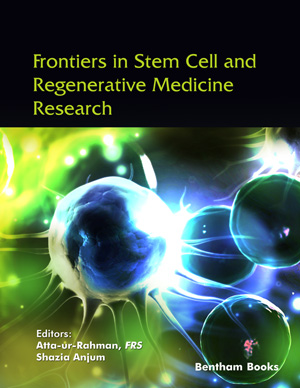Abstract
Mesenchymal stem cells (MSCs) have been widely used in the areas of
tissue engineering and regenerative medicine due to their wide differentiation potential
into various lineages. The stem cell/material interface involved is a complex
microenvironment where material can direct the stem cell’s fate through its inherent
properties (such as stiffness, surface topography and/or surface chemistry, and
nanoparticles themselves, etc.). Stem cells in contact with materials are able to sense
their properties and translate parallel signaling information into stem cell lineage
commitment and differentiation. These materials can be utilized as scaffolds for tissue
engineering and regenerative medicine and as nanoparticles for drug delivery or cell
tracking. Thus, it is of vital importance to investigate the effects of material properties
on the differentiation of MSCs to give a better design of biomaterials. With this in
mind, we summarize the recent reports about the effects of materials properties (such
as stiffness, surface topography and/or surface chemistry, and nanoparticles
themselves, etc.) on the differentiation of MSCs. We also overview a subset of the
possible mechanisms proposed to explain how the material properties affect the
differentiation of MSCs.
Keywords: Cell/Material Interface , Differentiation , Mesenchymal Stem Cells , Nanoparticles , Regenerative Medicine , Stem Cell Fate , Stiffness , Surface Topography , Surface Chemistry , Tissue Engineering


















